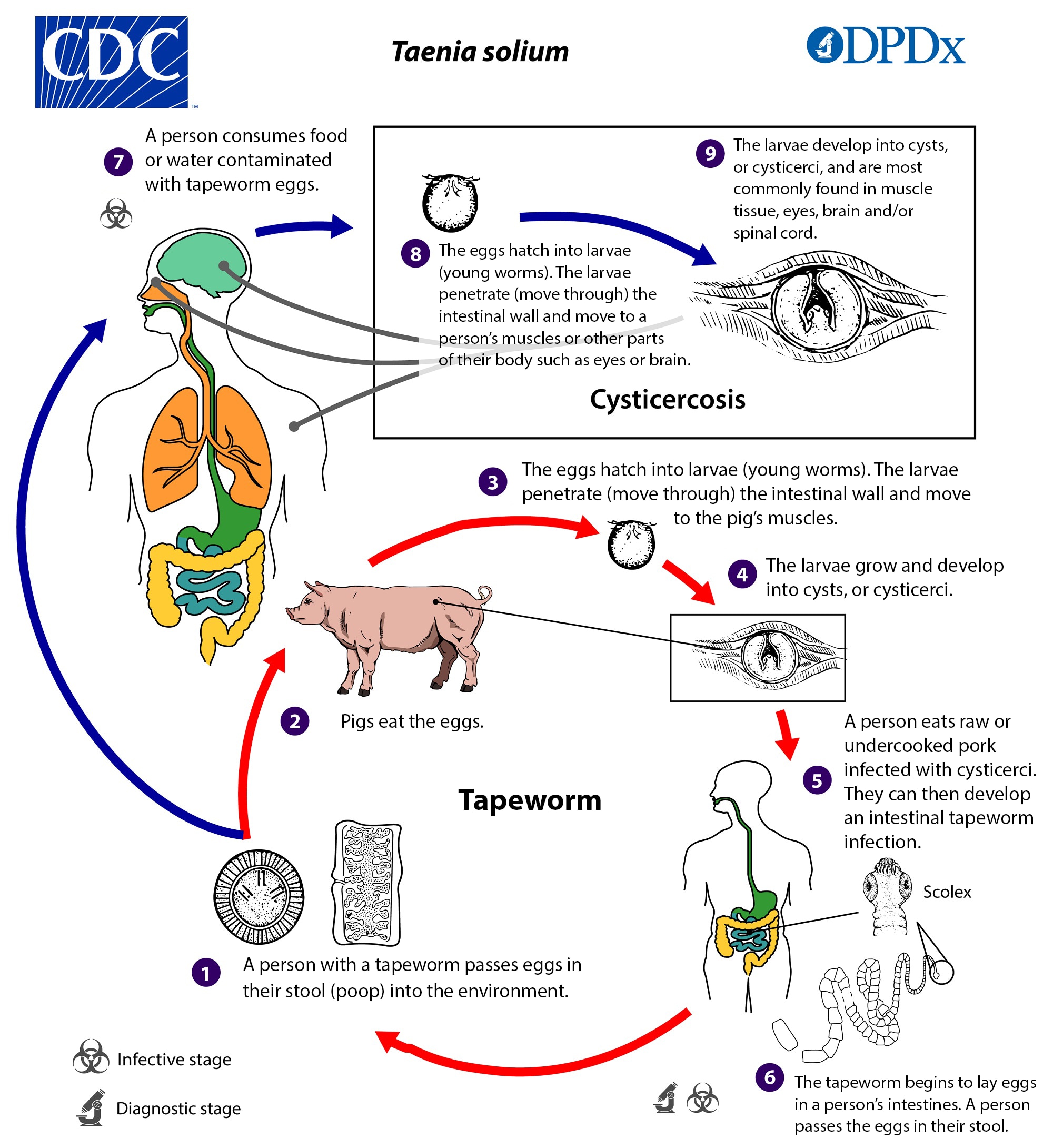At a glance
- Cysticercosis happens when people consume tapeworm eggs.
- A person with a tapeworm will pass (shed) tapeworm eggs in their stool (poop).
- Cysticercosis does not spread from eating raw or undercooked pork.
What causes it
Cysticercosis is a parasitic infection caused by the larvae (immature worm) of the tapeworm, Taenia solium. A person gets cysticercosis by consuming tapeworm eggs. These eggs hatch and develop into larvae. The larvae then penetrate (move through) a person's intestinal wall and move to tissues like muscle, eyes, or brain. This is where the cysts, or cysticerci, develop.
Pigs can also get cysticercosis when they consume tapeworm eggs. The parasite develops much like it does in people, with the cysticerci (cyst form of the parasite) forming in the muscle of the pig. If you eat undercooked or raw pork infected with the parasite cysticerci, you can develop tapeworm infection. It takes about two months for the cysts to become adult tapeworms. Cysticercosis is often confused with tapeworm infection, or taeniasis. Tapeworms are the adult form of the parasite.
Tapeworms live in your gut, and you pass the tapeworm eggs in your stool. If you eat food or drink water contaminated with tapeworm eggs, you can develop cysticercosis.
Lifecycle Taenia solium or Tapeworm

Why it spreads
Cysticercosis (infection involving T. solium larvae) doesn't spread from eating undercooked or raw pork. And someone with cysticercosis can't spread the disease to others. However, if you have a tapeworm (adult form of the parasite), you could spread tapeworm eggs to others. Swallowing these eggs could lead to cysticercosis.
Poor cleanliness or sanitation can spread tapeworm eggs to others through contaminated food or water. Living with someone with a tapeworm raises the risk of developing cysticercosis.
People with tapeworms can infect themselves with eggs, leading to cysticercosis (autoinfection).
At-risk populations
You can find human cysticercosis and taeniasis worldwide. However, you will primarily see them in developing countries in Africa, Asia, and Latin America. Cysticercosis and taeniasis affect people in rural areas who use unimproved sanitation facilities (where there is no separation of human waste from human contact) and where pigs roam freely and may eat human waste.
People living in the same household with someone who has a tapeworm have a much higher risk of getting cysticercosis than people who don't.
Although rare, people who have never traveled outside of the U.S. can develop cysticercosis if exposed to tapeworm eggs.
